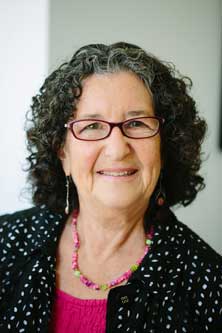Judith Lasker Co-authors Study on Medical Mission Guidelines
Short-term medical missions (STMMs) have been described variously as volunteer missions, internships, global health education and medical brigades, and in the last two decades there has been a surge in them. Despite mostly positive intentions and many examples of people helped, humanitarian aid and volunteer efforts like overseas volunteering health trips can also present real and potential harm to host communities.
Criticisms of short-term global health activities focus on visitors carrying out medical procedures without adequate training and/or expertise, inadequate licensing and credentialing of participants, patronizing attitudes towards host communities, inefficient use of resources, and a lack of continuity of services, among other issues. The problems that have been identified with STMMs, says a recent study, are often related to the lack of control and direction by host organizations in defining the programs.
The study, “Guidelines for responsible short-term global health activities: developing common principles,” appeared in the peer-reviewed journal Globalization and Health early this month. In it, Judith Lasker, professor of sociology at Lehigh, and eight colleagues with expertise in global health, analyze 27 published guidelines for best practices created by organizations and individuals seeking to improve short-term volunteer trips in underserved Global South communities.
Lasker notes: “The study tries to address the many criticisms of short-term global health activities and identify the most important principles to follow in order to improve these programs.”
Guidelines for Participating in Voluntourism
The authors identify the most frequently mentioned principles in these 27 guidelines. Of these, some focus on the volunteers’ preparation, safety and supervision and others focus on host communities’ needs, resources, patient care, participation in the program and the impact of programs.
For an STMM to be maximally valuable, according to the guidelines, it should have at least five features: appropriate recruitment, preparation and supervision of volunteers; a host partner that defines the program, including the needs to be addressed and the role of the host community in directing and teaching the volunteers; sustainability and continuity of programs; respect for governance and legal and ethical standards; and regular evaluation of program impact on host community. Lasker’s recent book, Hoping to Help: The Promises and Pitfalls of Global Health Volunteering surveyed organizations in the U.S. that sponsor STMMs and found that most of these guidelines are not followed.
The authors point out that the guidelines are authored primarily by individuals and groups located in the Global North. They review studies of host communities’ views on STMMs, resulting in the addition of a sixth principle: mutuality of learning and respect for local health professionals. They also note the lack of any enforcement mechanisms for best practices, and the many reasons why they are so often not followed.
With growing concerns about the value and effectiveness of humanitarian aid and volunteer effort programs, Lasker and her colleagues also advocate for comprehensive regulations and incentives in both host and sponsoring countries. Both of these practices are noticeably absent in current guideline strategies.
She adds: “We hope this study will contribute to conversations regarding how to reinforce the effective and ethical conduct of short-term health activities in the global context.”
Posted on:





